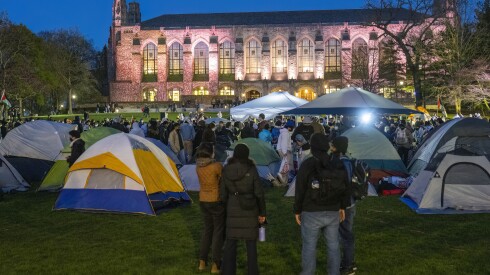As reported in the Chicago Daily News, sister publication of the Chicago Sun-Times:
The Electoral College solidified former Vice President Joe Biden’s win in the 2020 general election this week. Despite President Trump’s frequent claims, no evidence of widespread voter fraud has been found in swing states such as Georgia or Pennsylvania or any other state, including Illinois.
But in 1960, some irregularities in Illinois votes, specifically the ones in Chicago, prompted calls for an investigation from Republicans over then-Sen. John F. Kennedy’s victory. The saga played out in the pages of the Chicago Daily News.
“Fewer than 100,000 votes out of a total of 69 million cast in the Nov. 8 election may decide whether Vice President Nixon or Sen. Kennedy is to be our nest President,” William Harrison Fetridge, chairman of the Nixon Recount Committee of Illinois, told the Daily News on Dec. 5, 1960.
Fetridge name-dropped Chicago as one of the cities “where entrenched political machines control the election machinery,” alleging voter fraud. A lawsuit later filed accused Cook County of digging up “Kennedy voters from the cemeteries of Chicago.”
Several weeks later, on Dec. 19, 1960, the Electoral College met to cement Kennedy’s win — 300 electoral votes to Nixon’s 223, though that wasn’t the final total.
“In addition,” the paper reported, “15 unpledged electors from Alabama and Mississippi have decided to vote for Sen. Byrd, the conservative Democrat from Virginia.”
Those same electors urged other Southern electors who didn’t like Kennedy to do the same, the paper said. The overall goal was to kick the election to the House of Representatives where those electors hoped Sen. Byrd would win the election. (It wouldn’t have been the first time the House decided a presidential election.)
In the end, Illinois’ election certification sealed Kennedy’s win, pushing him over the 269 electoral votes needed to clinch the presidency, the Daily News said.
In words that could have been written today, the reporter wrote, “The closeness of the Nov. 8 election turned Monday’s normally cut-and-dried formalities into one of the most unique meetings of the Electoral College in modern history.”
Voter fraud in Cook County certainly wasn’t unheard of at the time (picture it: Cicero, 1924), but did Republicans have a case? According to scholar Edmund F. Kallina’s article in “Presidential Studies Quarterly,” the answer is yes, but also, no. His research found that Nixon was not “cheated out of Illinois’ electoral votes.”
For a deeper dive into the plan of a few Republicans to hijack the Electoral College, check out this report from the Washington Post.





